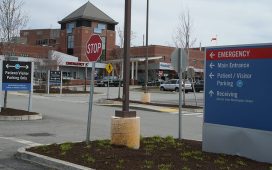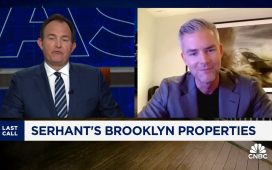Receive free Grenfell Tower disaster updates
We’ll send you a myFT Daily Digest email rounding up the latest Grenfell Tower disaster news every morning.
The head of one of the UK’s biggest insurers has called on ministers to extend measures capping how much residents in tower blocks have to pay for post-Grenfell fire-safety works to those in low-rise apartments.
Six years on from the Grenfell fire, thousands of leaseholders in blocks of flats under 11 metres in England are facing big bills to replace cladding and make other fire-safety changes. They were excluded from the cap after the government deemed the buildings at lower risk from fire.
Amanda Blanc, chief executive at FTSE 100 insurer Aviva, told the Financial Times that the government should “definitely” consider bringing lower-level apartment buildings within the scope of the cap, adding that the 11m rule “does feel slightly arbitrary”.
“This area has been very complicated and it has taken too long to get to a solution,” Blanc added. “In the meantime, you have had leaseholders in very difficult situations. What we would do is to encourage real clarity around the rules, because I think at the moment, that is lacking.”
Her comments echo recent criticism by MPs and campaigners who highlighted the plight of thousands of leaseholders in low rises having to pay for the modifications themselves.
Campaigners said that in some cases residents were forced to pick up these costs because the block failed a fire safety assessment but in others, it was insurers who made cover contingent on remedial work being carried out.
Moreover, freeholders are allowed to pass building costs on to leaseholders, resulting in a number of recent court rulings rejecting attempts to make landlords share in the cladding bill.
This month, the FT highlighted a case involving residents at Woodchester Court and Hitcham Court in Chipping Barnet, who had to pay to remove cladding last year at a cost of £10,000 per flat. One of the leaseholders said the insurance broker acting for the block informed the residents that Aviva would cover the building only if the cladding was removed.
At the time the insurer declined to comment on specific circumstances. Blanc said it had not forced residents in blocks under 11m to carry out remedial work to get coverage.
“We are not making it more difficult for leaseholders in those buildings,” she said, adding that the group was underwriting 10,000 new leaseholders after opening up its standard property insurance policy to customers with combustible cladding two years ago.
The British Insurance Brokers’ Association trade body backed Blanc’s call for a review of the cap. It urged the government to “consider a reduction in the 11m limit as any fire claim caused by dangerous cladding poses a risk to life, a serious loss for the owner and the leaseholders and in most cases a significant cost to the insurer”.
The Association of British Insurers said that an assessment of fire risk “should look at the use and construction of the building and not be constrained to arbitrary height limits”.
In response, the government said it would investigate any cases where landlords were proposing costly building remediation work for sub-11m buildings.
“In the rare cases where work is necessary in buildings under 11m, we expect freeholders to seek to recover costs from those responsible for building unsafe homes, and not from innocent leaseholders,” it added.












